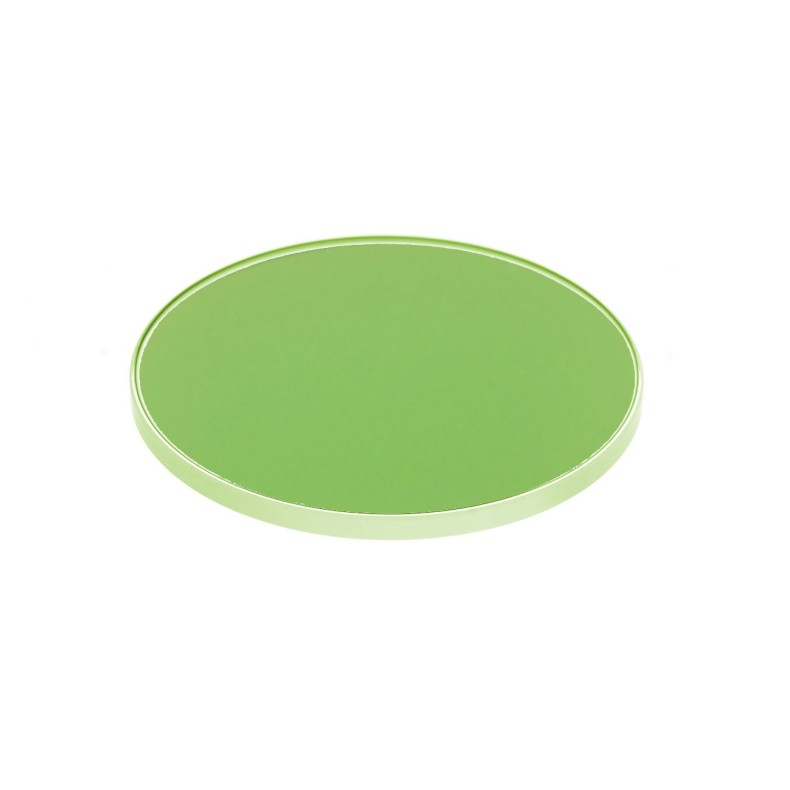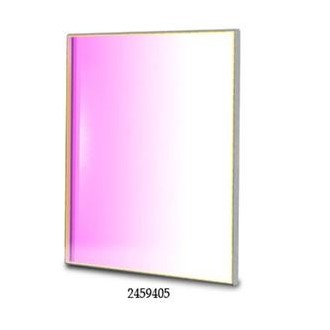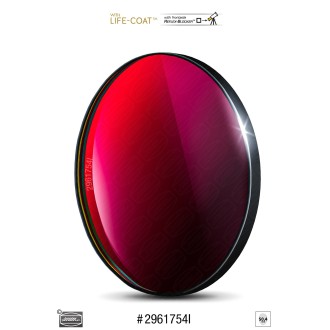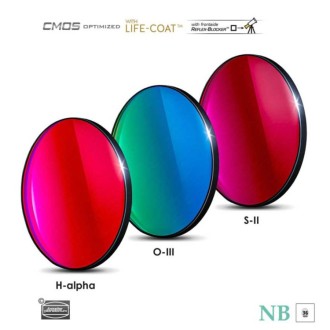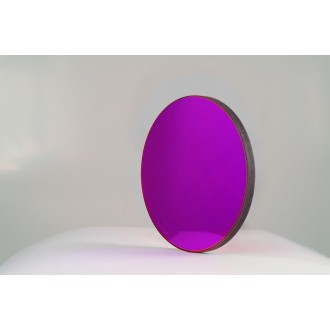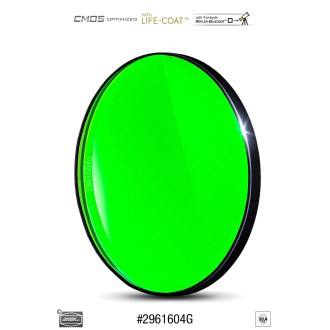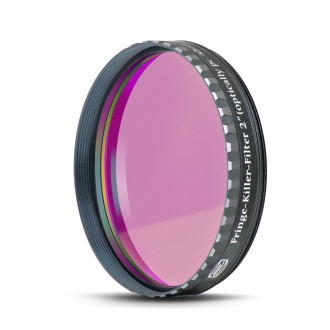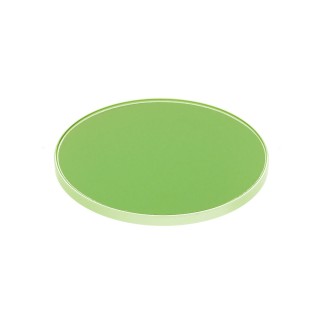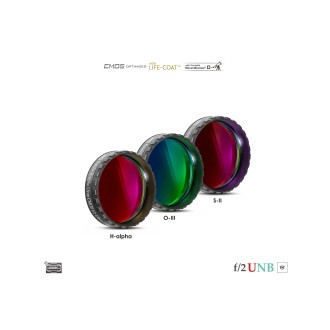
Filter Optolong SII-CCD from 6.5nm unmounted Ø 36 mm
The 6.5 nm narrow band SII filter is designed for specific astrophotography at the 672 nm wavelength. It can be used in combination with the OIII and H-Alpha filters to create "Hubble-like" images. By selectively reducing the transmitted wavelengths, this filter suppresses the effects of street lighting.
| Carrier | Description | Estimated Delivery | ||
|---|---|---|---|---|
 |
Home delivery - International | Home delivery - International |
Monday, 12 May - Monday, 19 May |
|

Home delivery - International
Home delivery - International
Estimated delivery:
Monday, 12 May - Monday, 19 May
Filter Optolong SII-CCD 6.5nm unmounted filter Ø 36 mm
The 6.5nm extra-narrow band SII-CCD filter (Sulfur II for CCD) is designed for nebula photography by allowing the passage of light centered on the 672nm wavelength with a bandwidth of 6.5nm and blocking the transmission of all other wavelengths, specifically those produced by artificial light, including mercury vapor and high and low pressure sodium vapor lights and the unwanted natural light caused by the neutral emission of oxygen in our atmosphere (Skyglow).
Main use
Used in combination with H-alpha and OIII-CCD extra-narrowband filters (SHO set) for CCD tri-color astrophotography
Narrowband images with the SHO set can be made with the Moon in the sky or with strong light pollution, thus preventing your equipment from sitting idle for several weeks.
The Hubble appearance of the images can be made by combining H-alpha, OIII-CCD and SII-CCD, such as the famous "Pillars of Creation" (Eagle Nebula M16)
The narrow band filter does not increase the brightness of the object, but increases the contrast between the nebula and the night sky (without illuminating the nebula).
Technical data
- Substrate material Schott
- Thickness 2.0mm
- Surface quality: 60/40 (see MIL-O-13830)
- The filter is made of optical glass with a flatness level of λ / 4 on both surfaces (surface irregularities are
- 80% transmission in the 672 nm SII line
- Infrared wavelength blocking between 700-1100nm
- 0.1% out-of-band transmission, specifically the main artificial light pollution emission lines (i.e. Na 589 nm, Hg 435 nm and 578 nm). The 0.1% transmission is equivalent to OD3 (optical density), and a high optical density value indicates very low transmission, and a low optical density indicates high transmission.
Coating specifications
- Non-cementitious optical substrate coating
- Outermost coating with ion-assisted electron beam evaporation deposition technology provides increased durability and scratch resistance, as well as CWL (center wavelength) stability unaffected by temperature changes.
- The planetary rotation system offers precision and homogeneity of coatings, which ensures high value in through-band transmission and high out-of-band optical density
Use:
- Visual observation (rural sky): Incompatible.
- Visual observation (urban sky): Incompatible.
- CCD photography: Excellent for nebula contrast enhancement.
- DSLR photography (unmodified): Good, although the sensitivity of unmodified sensors is reduced in the IBS spectral line.
- DSLR photography (modified): Excellent for contrast enhancement of nebulae.
- Planetary photography (from video clips): Uninteresting.
Filter Optolong SII-CCD 6.5nm unmounted Ø 36 mm

